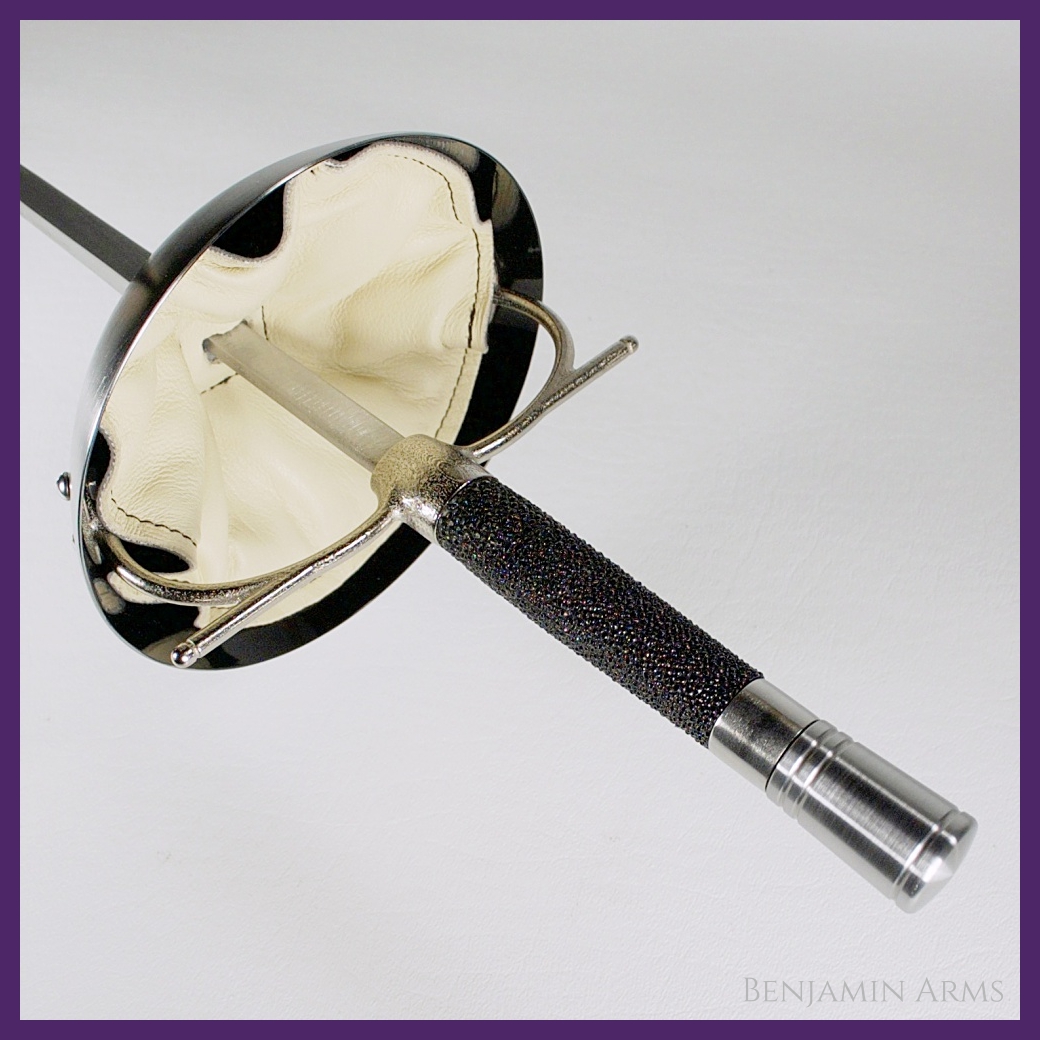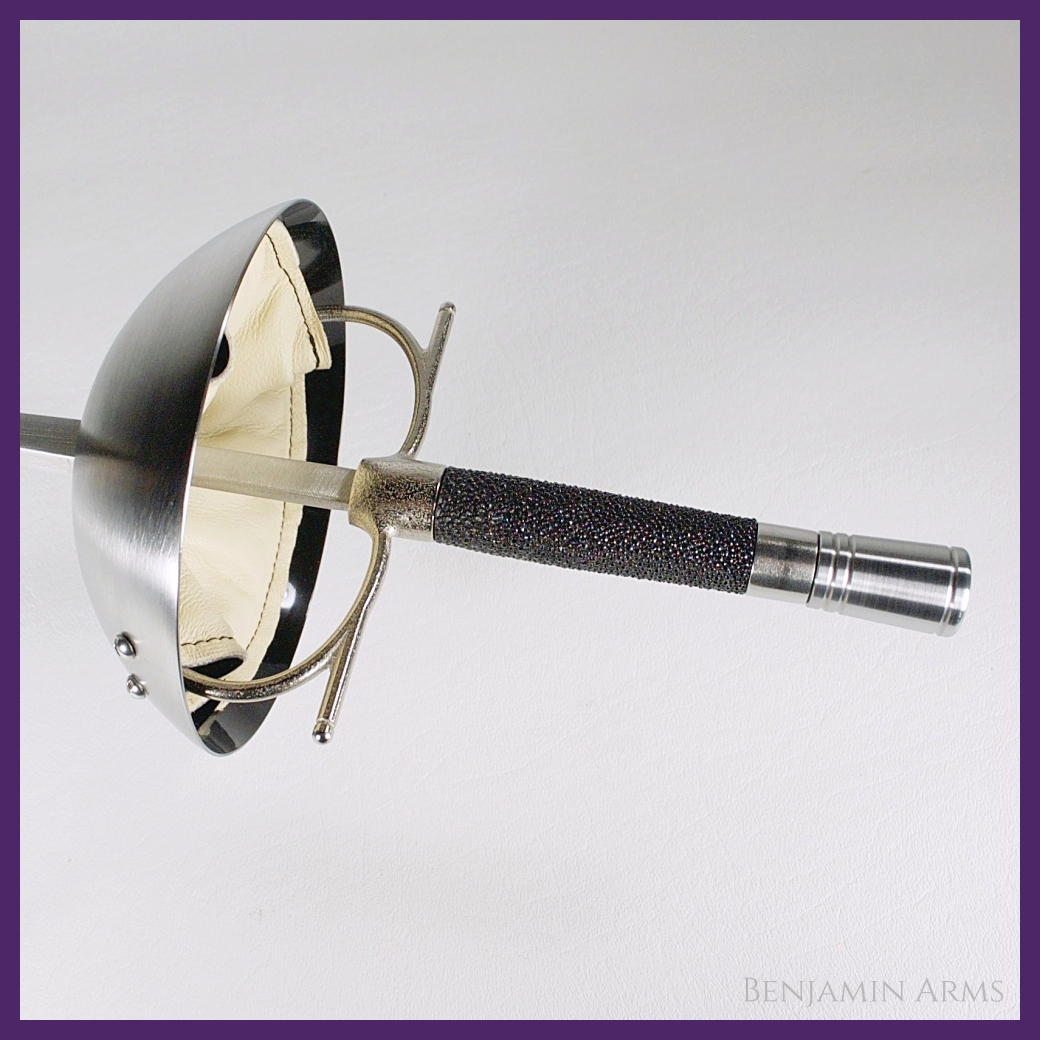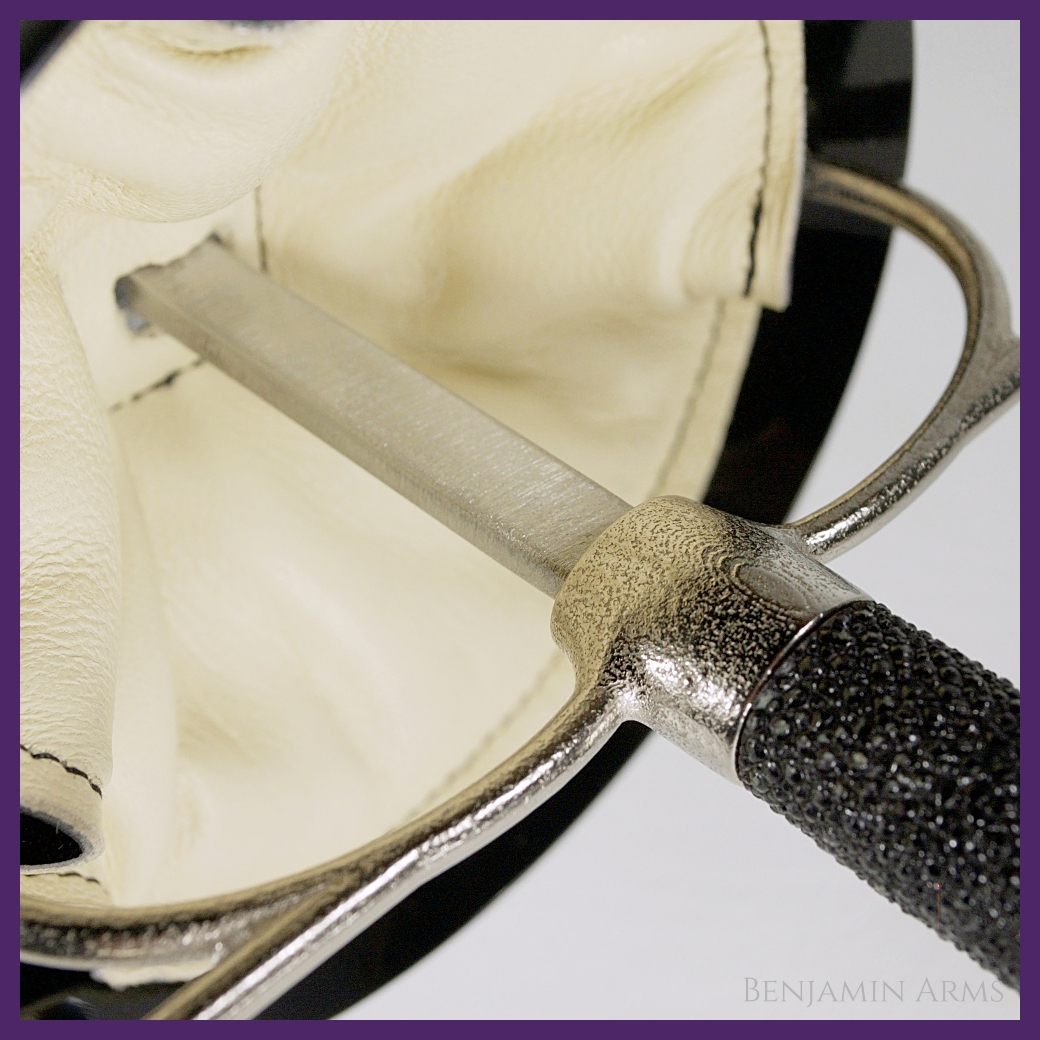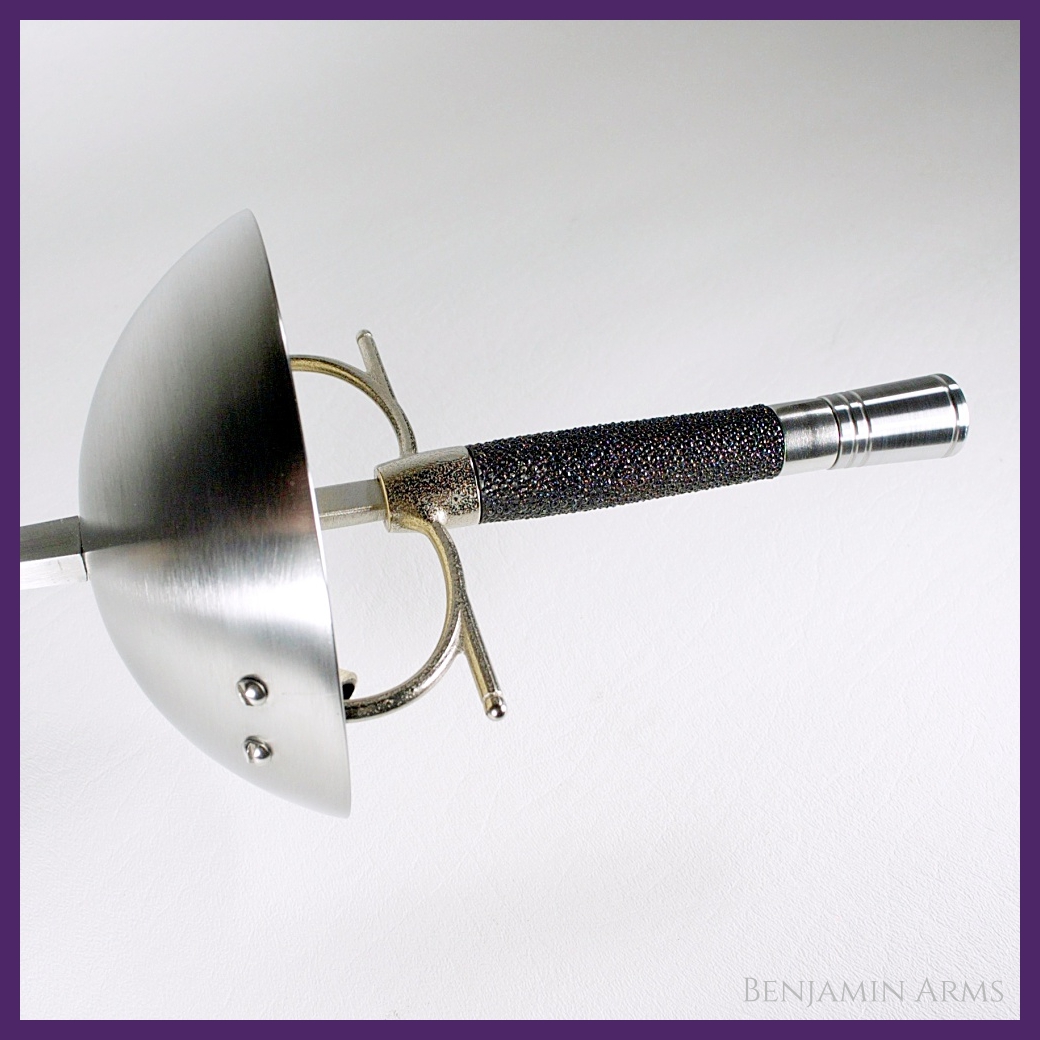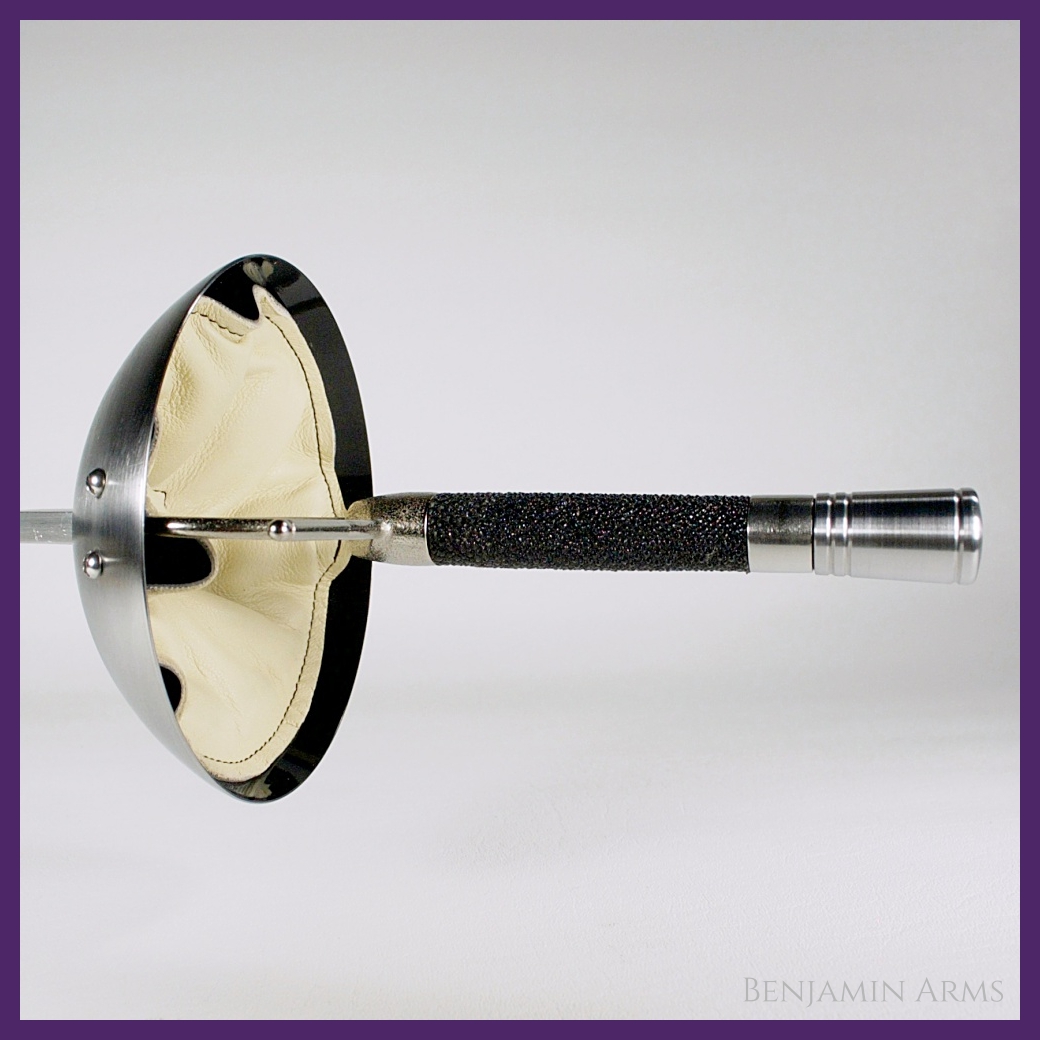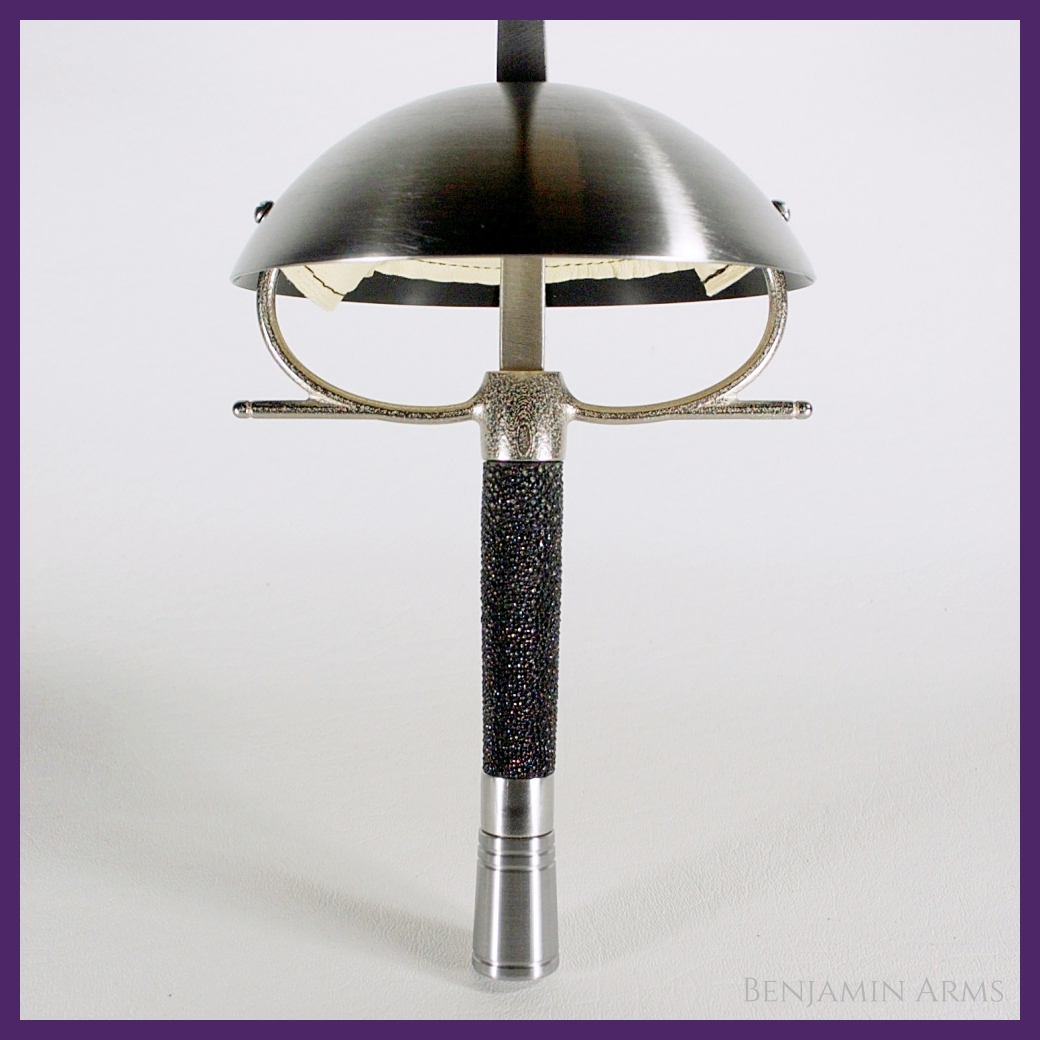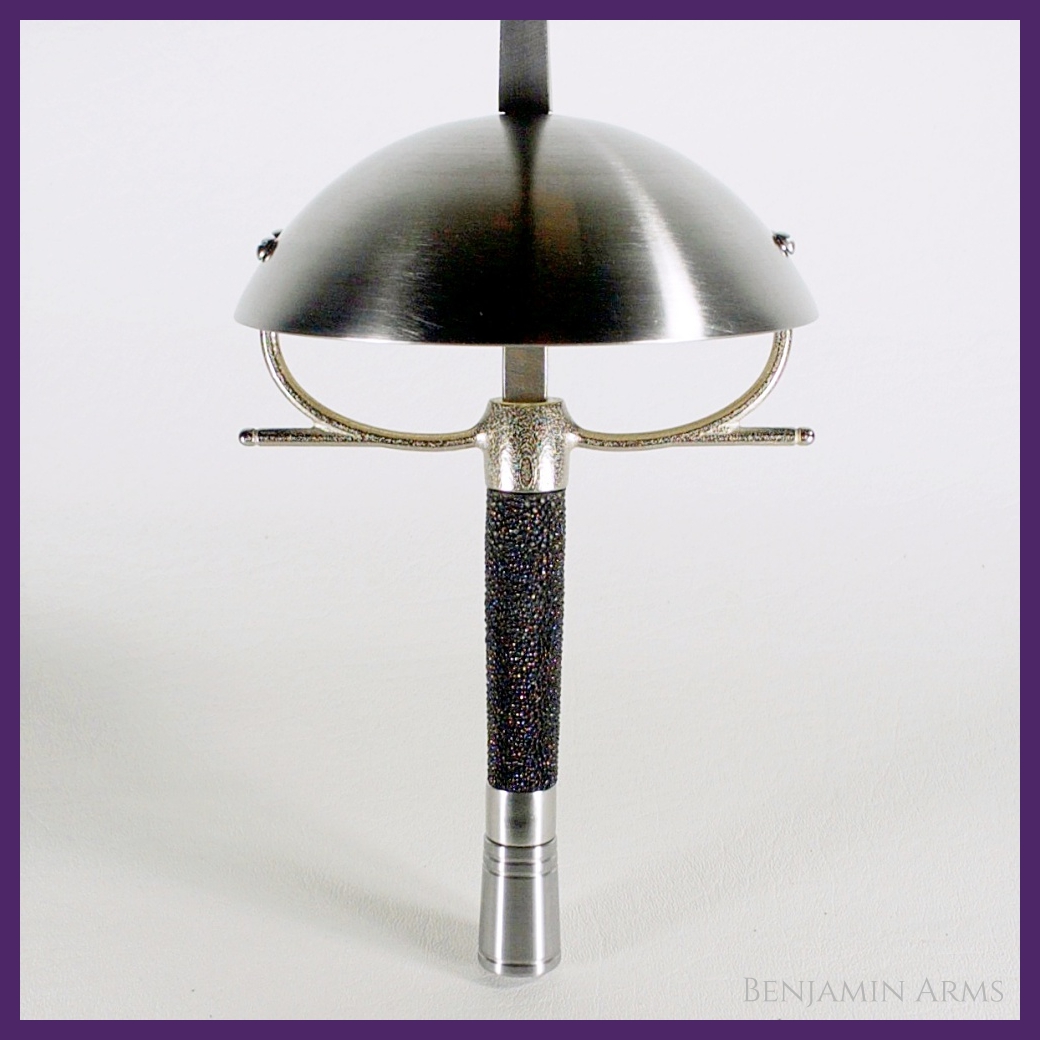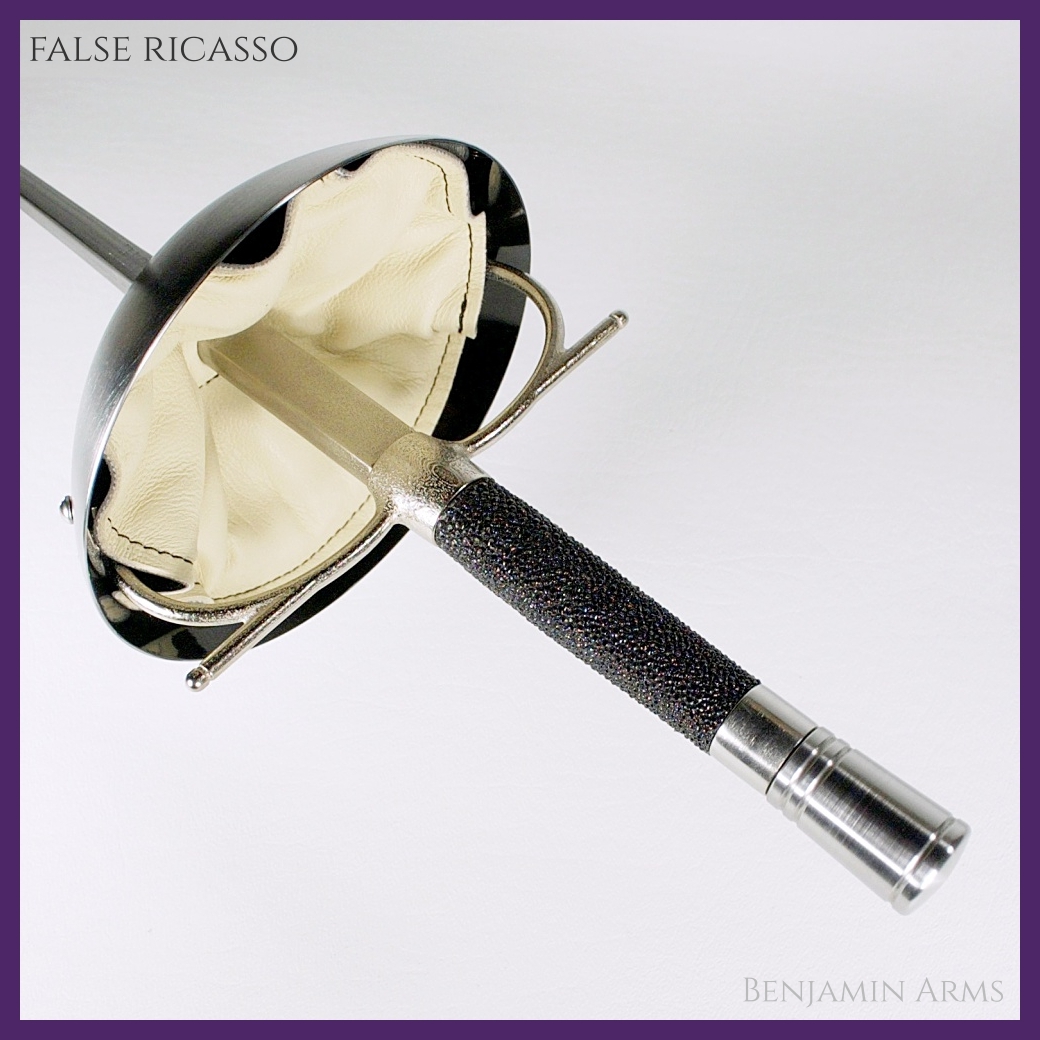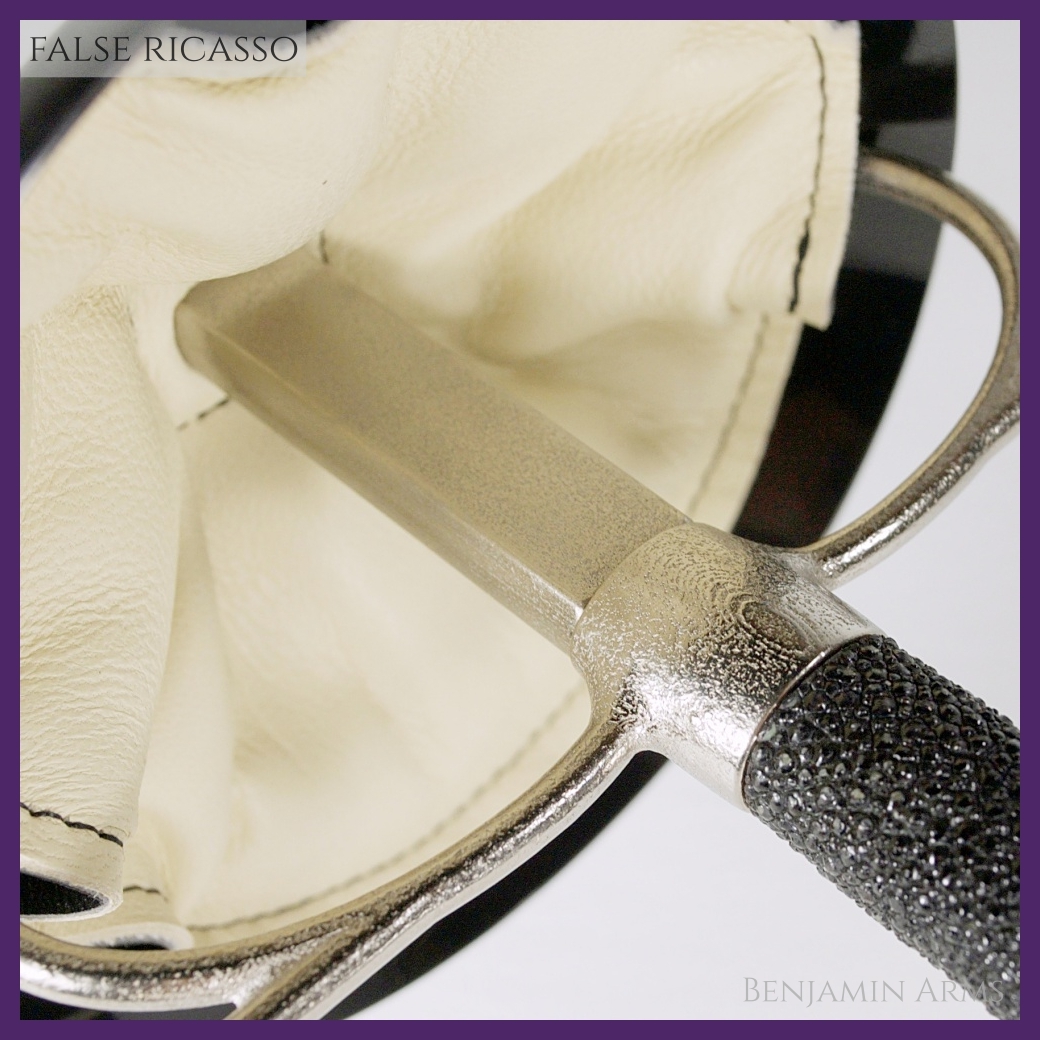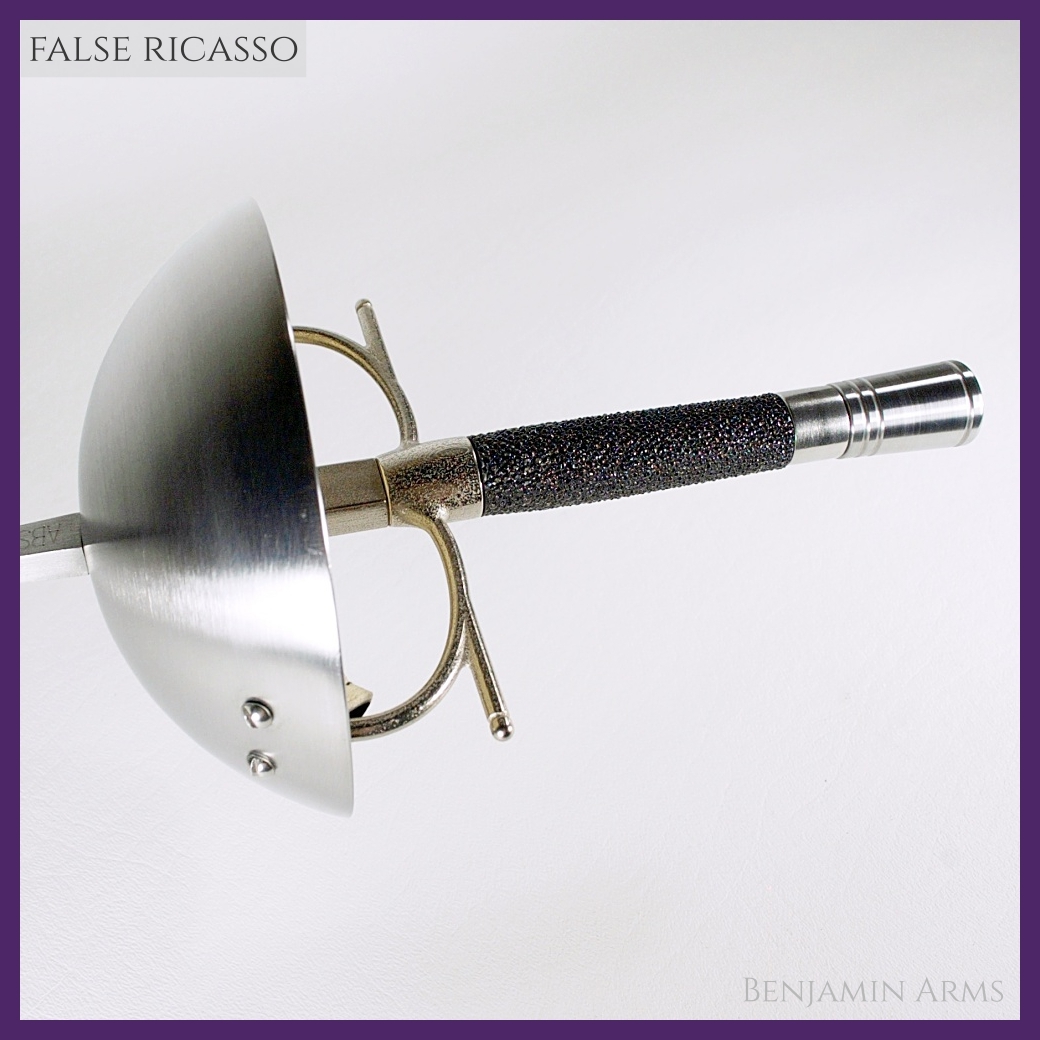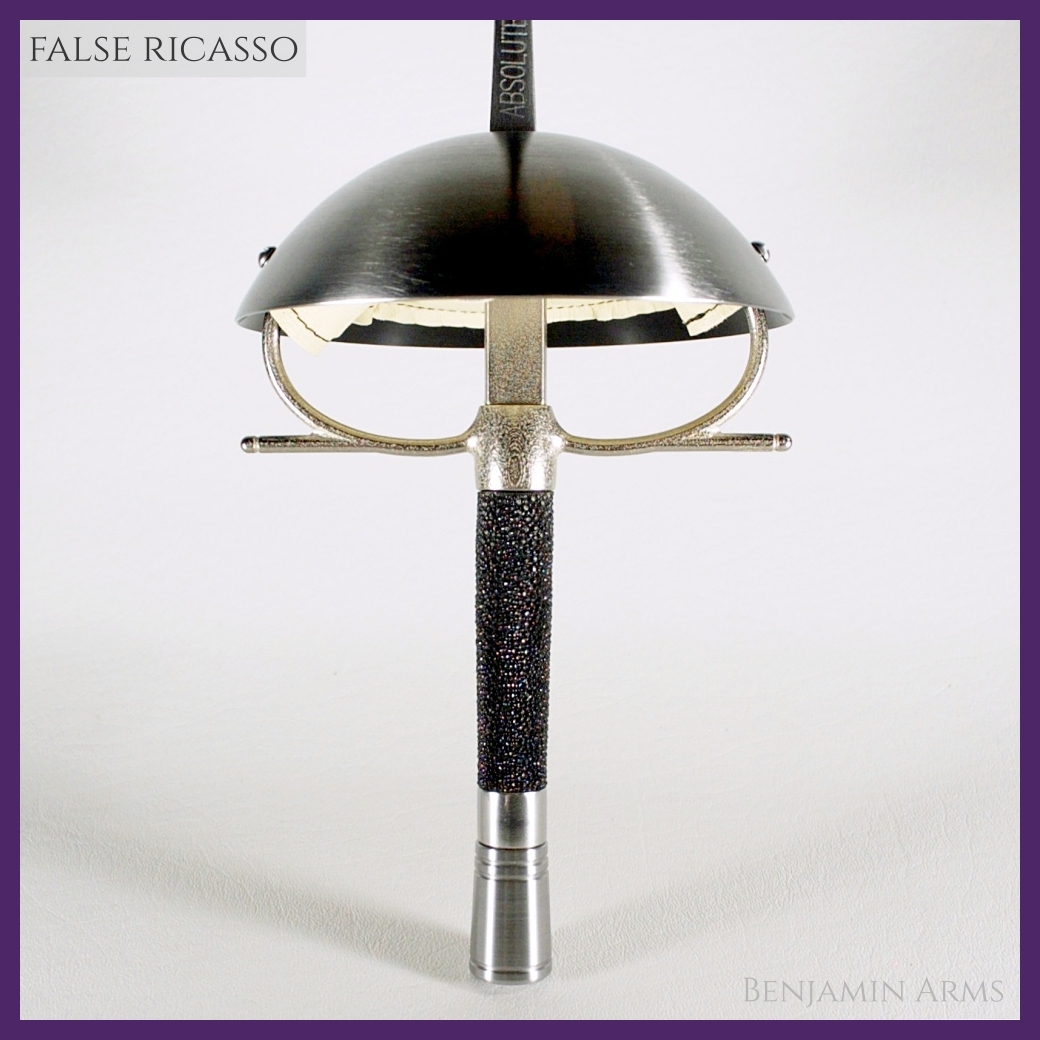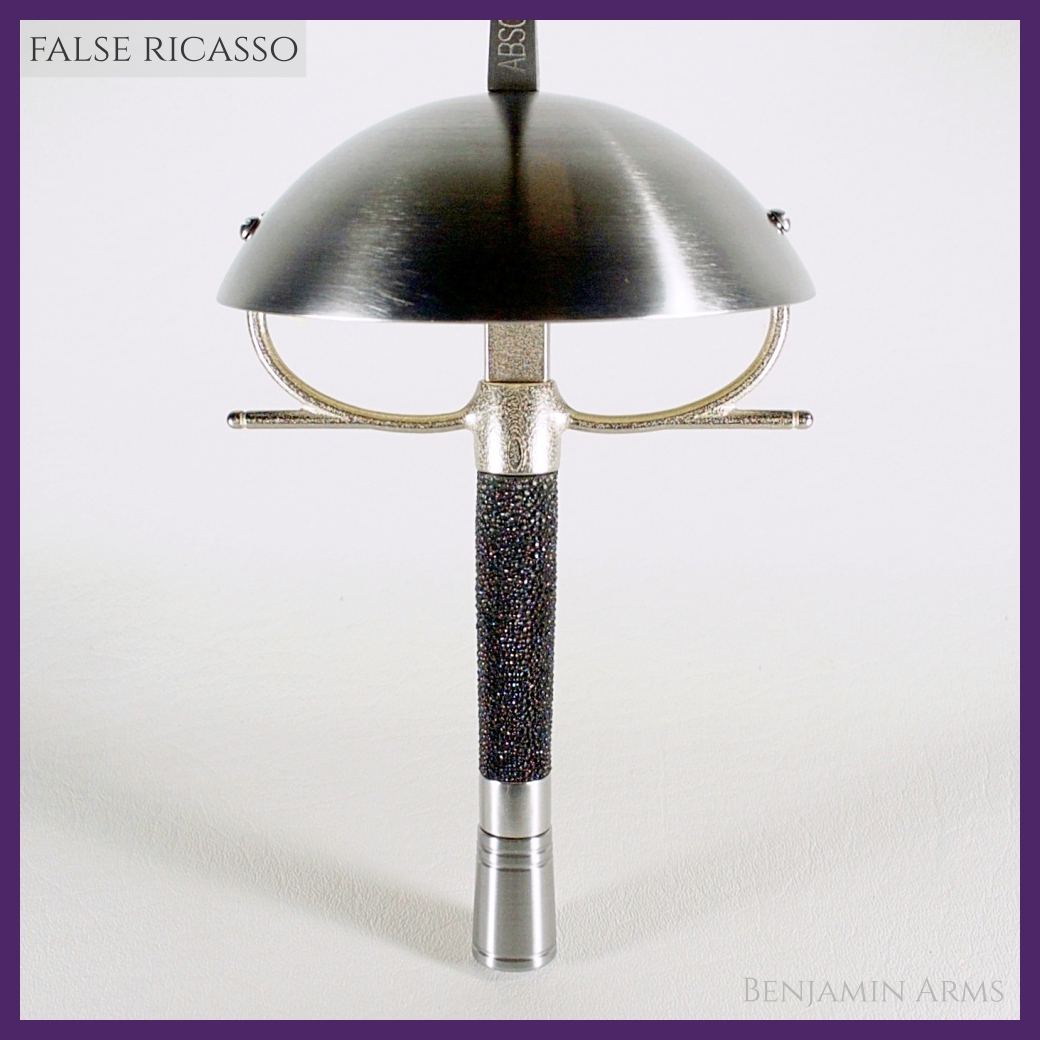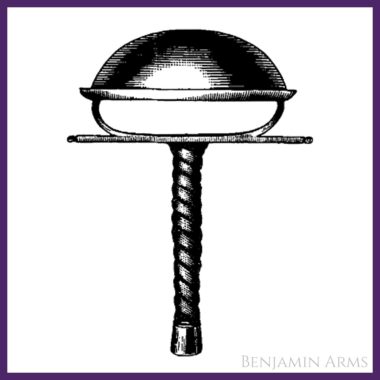$395.95
Description
Northern Italian Foil Fencing
Fencing schools in the 19th century never comprised the entirely of a country or culture. There were two distinct systems of fencing in Italy: Northern and Southern. While both originated from rapier fencing, the two systems varied slightly in the construction of the foil and more pronounced in the application. The Northern system borrowed techniques from the French school though with a strong, wide stance and more extended arm. We designed this Northern Italian foil to the exact specifications of a great fencing master of the Northern school: Luigi Barbasetti.
Designed by Maestro Luigi Barbasetti in 1902
Maestro Luigi Barbasetti was born in Cividale, Italy on February 21, 1859. He trained under both Maestro Giuseppe Radaelli and Maestro Masaniello Parise, though was widely considered a practitioner of the Northern Italian school of fencing. In his 1902 text La Scherma di Spada, Barbasetti detailed the construction of his foil which we faithfully reproduced:
| Barbasetti, 1902 | Benjamin Arms’ Northern Italian Foil | |
| Blade: 35” | √ | √ |
| Guard: 4.75” | √ | √ |
| Ricasso: 6 cm | √ | √ |
| Crossbar: 5.00” | √ | √ |
| Pad: Cushioned Leather | √ | √ |
| Grip: 3.12” | √ | √ |
| Fish skin grip wrapping | √ | √ |
| Conical pommel shape | √ | √ |
| Pommel Length: 4cm | √ | √ |
True Ricasso or False Ricasso?
The ricasso is the portion of blade between the guard and crossbar which the Italian fencer grips directly. We build our Northern Italian Foil with a true ricasso or false ricasso. A false ricasso mounts tightly on a French-tang blade to imitate a ricasso. Italian fencing masters assert the ricasso allows Italian fencers to feel the actions on the sword better than their contemporaries the French, Spanish, etc. It’s therefore figured a false ricasso stifles this benefit. While we absolutely recommend the true ricasso configuration for it’s historical accuracy, we don’t believe false ricassos diminish a fencer’s sensitivity to the sword. History demonstrates through it’s many masters that a ricasso is not required to be a successful, effective, or competitive fencer. We utilize false ricassos to offer a longer blade length and versatility to mount a variety of blades.
*Note: Above photos are of the true ricasso type unless noted in top left corner*
| Ricasso Length | Blade Length | Benefits | Drawbacks | |
| True Ricasso | 6 cm | ~34.5” | True ricasso more historically accurate | Slightly shorter blade; more fitting required for replacement blade |
| False Ricasso | 6 cm | 35” | Longer blade more historically accurate; blade replaceable with French-tang blade; false ricasso can be removed to use true ricasso blade. | Thicker than true ricasso; slight added weight |
Traditional Construction
Benjamin Arms builds all weapons to exacting specifications determined by the desired handling characteristics, school of fencing, and aesthetic tastes. We hand-carve shock-absorbing wood for the grip’s core to diminish vibrations from the blade into the hand. Each hand-fit component make a strong and durable foil for consistent and reliable use.
Italian Foil Sizing
Italian foils were not sized to the fencer as much as French weaponry. The Northern Italian Foil does not come in any other sizes than those specified by Luigi Barbasetti in 1902.
Specifications
- Leather & cord button on blade.
- Spun steel guard (4.75 inch diameter) with matte-black interior enamel coating
- 3D printed, solid steel crossbar
- Machine screws attach guard & crossbar for easy removal & tightening
- Ivory-colored lambskin finger pad
- 3D printed, solid steel false ricasso
- Hand carved wood-core grip wrapped in black fish skin (shagreen)
- Conical pommel slots into grip ferrule (end-cap) with 6x1mm threading
- Ambidextrous
- AHF tournament compliant
Additional information
| Ricasso Type | True Ricasso, False Ricasso |
|---|
